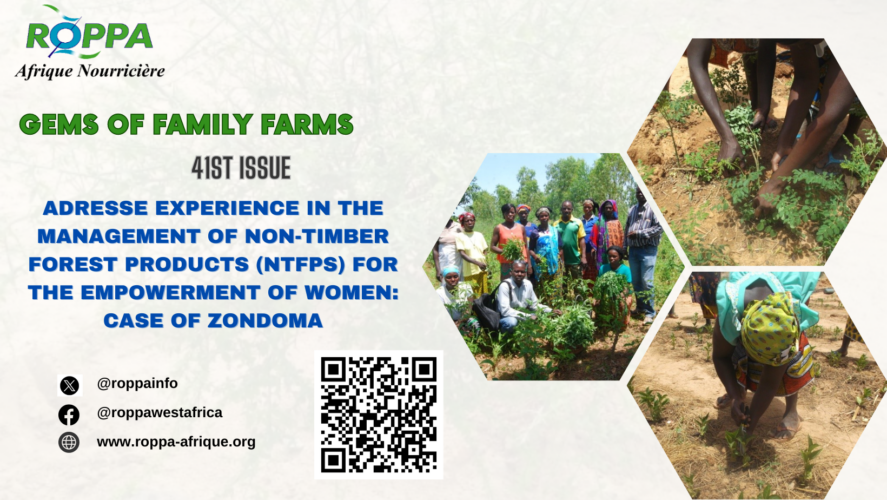In the heart of Burkina Faso, a silent yet powerful revolution is taking shape, transforming the lives of rural women and redefining the management of Non-Timber Forest Products (NTFPs). This is the story of the Association for Development through Existing Resources and Services in the Sahel (ADRESSE), an organization that has made the valorization of NTFPs in the Zondoma province a model for sustainable local development and women’s empowerment. This adventure, rich in lessons and successes, is the highlight of the 41st issue of our section “Gems of Family Farms”.
The Northern region of Burkina, with its rich plant diversity, offers enormous potential for local development through NTFPs such as Acacia machrostachya seeds and Baobab (Adansonia digitata) leaves. Traditionally, the collection and marketing of these resources have been the prerogative of rural women, playing a crucial role in the fight against unemployment and poverty. However, the low exploitation of this sector, due to lack of training and insufficient equipment, greatly limited its potential. ADRESSE identified these challenges as opportunities to rethink the exploitation of NTFPs. By adopting a holistic approach focused on awareness, capacity building, the creation of nutritious gardens, and the practice of Assisted Natural Regeneration (RNA), the organization initiated a radical change in the management of natural resources.
ADRESSE’s interventions have had a profound impact on the community. Awareness and training have led to the adoption of sustainable harvesting practices, thus preserving the integrity of ecosystems while ensuring a stable source of income for women. Nutritious gardens, enriched with Baobab and Moringa, have not only diversified the sources of NTFPs but also strengthened the food and nutritional security of families. The practice of RNA has revitalized agroforestry parks, improving biodiversity and ecosystem resilience. The testimonies of the women involved in the project illustrate the profound change experienced. Previously, the collection of NTFPs was done at the risk of their physical integrity and in conflict with forest legislation. Today, thanks to the training received and the equipment provided, they collect resources in a secure, environmentally respectful manner, and in partnership with forest authorities.
ADRESSE’s experience in the Zondoma province is an eloquent model of women’s empowerment and sustainable management of natural resources. It demonstrates how, with the right practices and adequate support, NTFPs can become a powerful lever for the socio-economic development of rural communities. We invite you to delve deeper into this transformative experience and draw inspiration from its success. Download the capitalization document at: ADRESSE EXPERIENCE IN THE MANAGEMENT OF NON-TIMBER FOREST PRODUCTS (NTFPs) FOR THE EMPOWERMENT OF WOMEN: CASE OF ZONDOMA
This experience is a shining example of how targeted and inclusive interventions can generate lasting positive changes. Their story is a powerful testimony to resilience, innovation, and commitment to sustainable development that deserves to be shared and celebrated.

